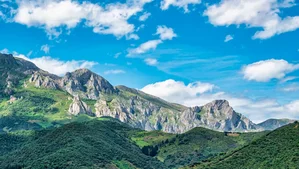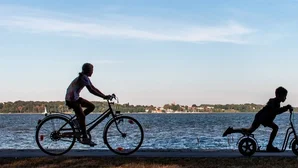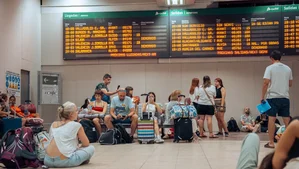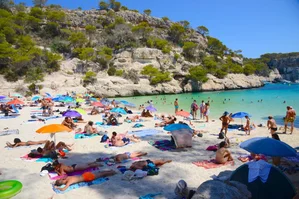Anti-Tourism Protests Intensify in Spain: A Growing Concern for Expats and Locals Alike

As Spain gears up for another year of record-breaking tourism, the anti-tourism protests that have been simmering across the country are showing no signs of abating. The discontent, particularly among locals, is centered around the debilitating effects of overtourism on housing, the environment, and community life.
Housing Crisis and Tourism
In cities like Barcelona and the Canary Islands, the housing crisis has become a pivotal issue. The proliferation of short-term tourist rentals, largely facilitated by platforms like Airbnb, has driven housing costs beyond the reach of many locals. In Barcelona, for instance, the city council has vowed to ban all Airbnb-style accommodations by 2028, a move that has been met with both support and skepticism from residents and protesters alike[1][2].
Environmental and Social Impacts
The environmental toll of overtourism is another significant concern. In the Canary Islands, protests have been fierce, with activists highlighting the degradation of natural areas and the strain on local resources. In Tenerife, a hunger strike was launched in 2024 to oppose the construction of a new beach resort, underscoring the deep-seated worries about the impact of tourism on fragile ecosystems[2].
Protests and Vandalism
The protests have sometimes turned violent, with incidents of vandalism reported in several tourist areas. In Tenerife, over 230 sunbeds on the beaches of Las Vistas and El Camison were defaced by vandals, and in Seville, anti-tourism protesters smeared faeces on apartment lock boxes to protest Airbnb licenses[2].
Planned Actions for 2025
As the new year begins, there are indications that the protests will continue and possibly intensify. Nestor Marrero Rodríguez, secretary of the Tenerife Association of Friends of Nature (ATAN), has confirmed that several demonstrations are planned for 2025 in tourist areas. These protests will focus on demanding stricter regulations, including the implementation of a tourist eco-tax and limits on new constructions in favor of renovating existing hotels[1].
Government and Local Authority Responses
Authorities have begun to respond with various measures aimed at mitigating the effects of overtourism. In addition to Barcelona's plan to ban short-term tourist apartments, Palma de Mallorca has capped cruise ship arrivals to reduce congestion. The Canary Islands have introduced daily visitor limits for certain national parks and nature reserves to protect delicate ecosystems[1][2].
However, protesters argue that these measures are often too little, too late. The Assemblea de Barris pel Decreixement Turístic (Assembly of Neighbourhoods for the Decline of Tourism or ABDT) in Barcelona believes that the city authorities are not doing enough to address the root issues, such as the housing emergency and environmental degradation. They advocate for a more radical approach, including the abandonment of tourism promotion policies and the adoption of an eco-social transition[1].
Impact on Expats and Tourists
For expats living in Spain and tourists planning to visit, it is essential to be aware of the local regulations and sentiments. Some regions are limiting cruise ships, banning short-term rentals, and reducing access to natural areas. Understanding these changes can help in navigating the evolving tourism landscape in Spain.
In conclusion, the anti-tourism protests in Spain reflect a broader struggle between the economic benefits of tourism and the need to preserve local communities and environments. As the situation continues to unfold, it remains to be seen whether the authorities and protesters can find a balance that satisfies both the economic and social needs of the region.
Related Stories

Northern Spain Named Best Global Destination for a Road Trip
Northern Spain wins title of best global road trip destination by Travelbook.de, celebrated for its stunning landscapes, rich culture, and scenic routes.

Discover the Best Cycling and Mountain Biking Routes in Cantabria
Explore the stunning cycling and mountain biking routes of Cantabria, Spain. From coastal paths to challenging mountain trails, discover routes for all skill levels amidst breathtaking landscapes.

Train Derailment Between Atocha and Chamartín Affects Thousands of Commuters
Train derailment in Madrid tunnel disrupts 13,700 commuters, with ongoing efforts to restore service between Atocha and Chamartín stations.

Normality Restored in Spanish Rail Network After Disruptions
Spanish rail services to resume normal operations on Oct 21 after disruptions, ADIF confirms, marking an end to weeks of travel chaos for commuters and tourists.

Illegal Tourist Rentals Surpass Legal Ones in Menorca, Raising Alarms
Illegal tourist rentals in Menorca now outnumber legal ones, posing threats to the island's sustainability and living costs, with calls for urgent regulatory action.